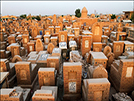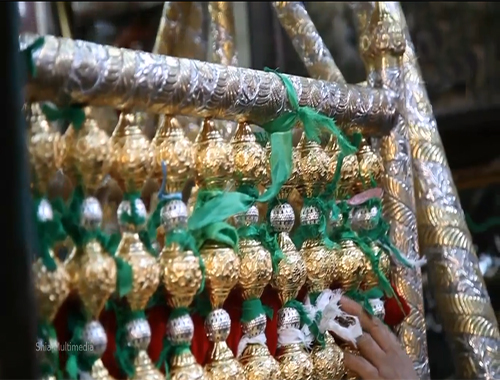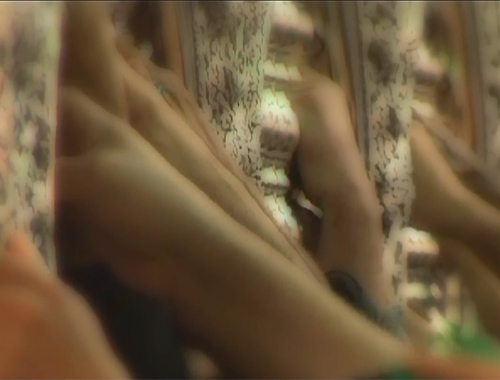
The Western culture has a big impact on the youth of today, but Islam has provided a way to keep us on the right path. It has strongly recommended early marriage. All the problems of today can be solved with this simple step. It is said that the Holy Prophet was proud of the fact that Islam has made it easy to get married. Have we not turned this around? Traditional Muslim wedding most parents today view marriage through the glass of culture and traditions. They have a set picture of the son/daughter in law, of their family, of the wedding day, of almost everything. Unfortunately, some fail to look at the real Islam and the real issues of today when creating this picture. Today is not the same as when the parents were younger. Just like Imam Ali (A.S) has said in his famous hadith, “Do not force your children to behave like you, for surely they have been created for a time which is different to your time.”
How much longer will parents agree to all these Islamic proofs but keep following the culture? The youth today have different needs and different way of approaching things. Imam Ali (A.S) also states: “People resemble the people of their time more than they do their fathers.” He knows better than we do. Why not listen to him?
Marriage is one such topic. We need to admit that the youth today have a different way, and as long as that way is not un-Islamic, parents need to start listening with an open mind. Culture is not something the youth pay attention to, especially when it comes to marriage. The youth today have had a lot more exposure to scholars and learning Islam without the mix of culture, which is a blessing since it is learned as pure Islam, without some of the meaningless cultural traditions. Usually culture conflicts with what youth are learning about what Islam says and what their parents make them do. Even so, many parents have learned true Islam after attending speeches, lectures, conferences, etc. They have changed their lives completely (observing Hijab, eating Halal, say praying). But when it comes down to marriage, they have not picked up the true Islamic way of looking at it. Is that not double standards? You can’t pick a little of Islam and leave the other parts of it.
The number one mistake parents make is thinking it is too early for their children to get married, that they are not “mature” yet. A girl is a woman when she is nine. Allah did not set this rule for no reason. She is no longer a girl, but a woman, meaning her physical and mental psyche is no longer that of a child. It is the same for men at age 15. Getting married early keeps the youth away from sin and corruption. Especially today, not fulfilling or denying marriage leads one to engage in dating, causes them to sin more (not lowering their gaze, etc.), look to other sources to satisfy their desires, etc.
The Holy Prophet (P.B.U.H&H.P) states: “O youths, whosoever among you can marry, he should do so, because marriage protects your eyes (from indulging in sin by looking lustily at others) and privacy.”
The Western culture has a big impact on the youth of today, but Islam has provided a way to keep us on the right path. It has strongly recommended early marriage. All the problems of today can be solved with this simple step. It is said that the Holy Prophet was proud of the fact that Islam has made it easy to get married. It has been narrated that when a youngster marries early in his youth, Satan cries out of desperation and says, “Alas! This person has protected one third of his religion, now he will protect the remaining two thirds also.” (Mustadrak al-Wasail)
Another issue is the new approaches youth are taking to get married. It’s not always the same story where parents find the spouse; rather, the majority of the youth today are taking the responsibility to find someone. Through school, work, etc., many youth find someone who is a suitable match and begin to consider marriage. How should youth and parents take that? If it’s not according to parental plans, does it make it wrong? According to Islam, both parents and youth must agree, but eventually the youth’s input is the most important and final. Unfortunately, what’s happening today is that the youth find a suitable match, and instead of getting consideration from the parents, they hear a “no way” without discussion. The usual reasons are “you’re too young”, “the guy’s not stable yet”, or “(s) he’s not of the same culture”.
Break these down, and you’ll see that these reasons hold no substance in the view of Islam. Islam considers just one thing when looking for a spouse and that is piety. Islam does not regard social status, race or culture as an obstacle in marriage. It simply states that the first attribute that should be taken into consideration is piety (Taqwa).
According to the book Islamic Family Structure, Imam Sajjad (A.S) said to a man who was regarding race/ethnicity in marriage: “Do you not know that God the Almighty removed all inferiorities and compensated for all defects by Islam? He replaced inferiority with nobility. Now, no matter what the social status of a Muslim is, (s) he is not inferior but is respectable. The inferiorities belong to the Age of Ignorance.” If a Muslim couple has faith, piety, morality, trustworthiness, chastity, purity and health, then they are well-matched. This is true even if one is an Arab, and the other one is a Persian; one lives in a city, and the other one is a villager; one is rich, and the other is poor; one is white, and the other is black; one belongs to a noble family, and the other one does not.
There is also no rule in Islam that says the guy/girl must have a bachelor’s degree, a job, and a house in order to get married. Parents need to get over that way of thinking! Islam encourages an early marriage; in fact marriage becomes mandatory when fear of sin is involved.
This article borrowed from Islamic insight.
 Prophet Muhammad (P.B.U.H&H.P) - Islam Guidance
Prophet Muhammad (P.B.U.H&H.P) - Islam Guidance









